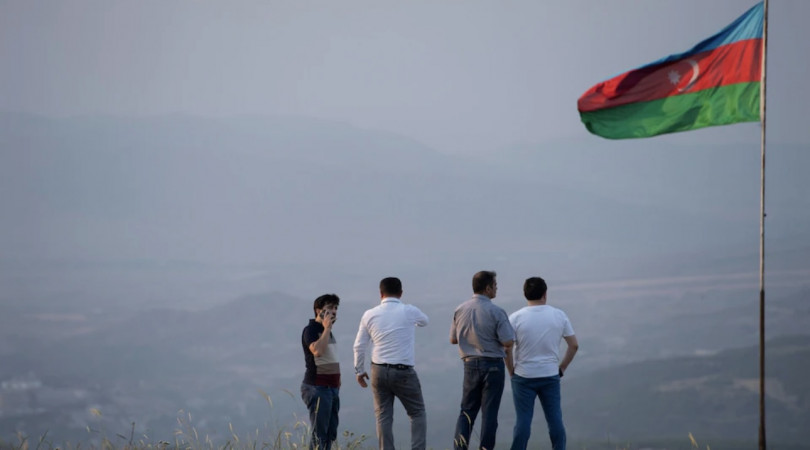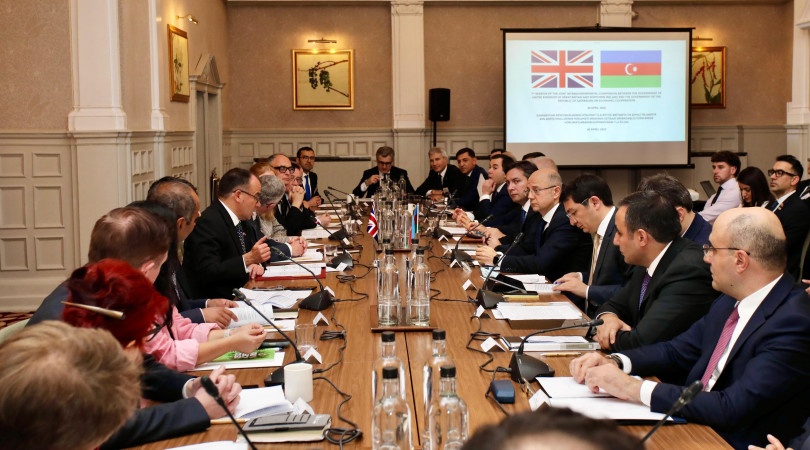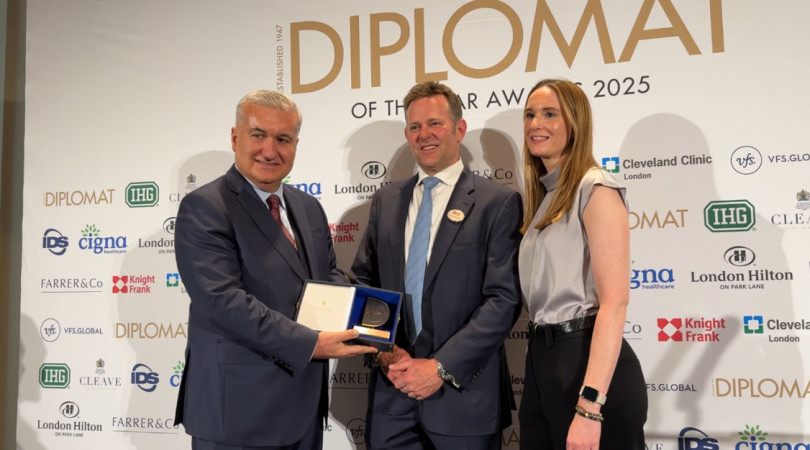Restoring peace in the Caucasus - the Azerbaijani perspective
In a reflection of the state of global affairs today, a rather straightforward geographic fact placing Azerbaijan as the only nation in the world bordering both Iran and Russia can serve as a content-rich introduction to the challenges and turmoil facing Eurasia. With dark storms raging around, the South Caucasus has once again emerged as the vital link between Asia and Europe, a major source for energy diversity and a gateway to Central Asia. Although the calamitous events in the wider region have highlighted the strategic significance of the South Caucasus, the most recent flare up of hostilities along the border areas of Armenia and Azerbaijan understandably raise concerns about peace and security in the area. Thus, amidst the flurry of international activity, the United States, building on the ongoing efforts by the E.U., has stepped up its diplomacy with Secretary of State Anthony Blinken bringing together foreign ministers of Azerbaijan and Armenia in New York and National Security Adviser Jake Sullivan hosting his Armenian and Azerbaijani counterparts in Washington. In fact, the foreign ministers of Armenia and Azerbaijan are expected to have more meetings in the near future.
For three decades following the collapse of the USSR, the illegal occupation of Azerbaijan’s internationally recognized lands and a major forced displacement of Azerbaijani civilians remained the main threat to stability in the region. With Azerbaijan restoring its territorial integrity in the course of the 44 days war of 2020, the remaining key issue is to ensure a lasting peace and normalization in the region. Right after the cessation of hostilities in 2020, Azerbaijan offered steps towards normalization and has since elaborated a five-point road map towards a peace agreement, which includes, among others, a mutual recognition of territorial integrity, resumption of economic relations, and delimitation of borders.
Armenia, on the other hand, despite signing the Russian-mediated November 2020 trilateral statement, still struggles with making tangible progress on implementing its own commitments.
Such hesitation to take practical steps towards peace is not new for Armenia. After all, it was the Armenian side that over the three decades of internationally mediated negotiations rejected all peace proposals and refused to implement the four U.N. Security Council resolutions calling for withdrawal of Armenian troops from Azerbaijan. That failure to recognize reality and stubborn embrace of an unsustainable status quo eventually and predictably led to another war, costing thousands of lives on both sides.
Today, the situation is dramatically different and Armenia has new leaders. Yet, the echoes of that hesitation to accept peace are still visible. From an ex-president questioning whether Armenia should remain independent or join Russia in a single state to the current Prime Minister's rather theatrical U.N. speech, which included invocations of none other than Hamlet, the issue is not just acceptance of a specific peace agreement, but rather the lack of clarity over Armenia’s place in the region and, ultimately, it's very future.
This, of course, impacts on an entire region as neither Azerbaijan, nor Armenia exist in isolation. Our destinies, just as our geography, are intertwined making a neighbourly peace the only reasonable option. Leaving ethnic mythology and unrealistically secluded versions of history aside, Armenia can and should join the inclusive regional integration framework. Merchants of confrontational ideologies, who cheer from abroad and chose to never reside in Armenia, may not like the idea of peace at the expense of glorified eternal struggle with neighbours, but for the people of Armenia a sustainable peace would finally break a vicious cycle of violence, self-imposed economic isolation and uncertainty over the future.
If anything, the upheaval around South Caucasus makes full normalization in the region even more urgent. With Azerbaijan planning to double deliveries of natural gas to Europe in the near future and the nation's of Central Asia working with Baku to speed up the implementation of transportation and communications corridors across the Caspian and onwards to Europe, the potential dividends of peace are increasing, just as are the opportunity costs of delaying the peace process.
Over the last 30 years, Azerbaijan has pursued a balanced independent policy with strong emphasis on partnership with western nations on security, energy diversification and regional cooperation - for example, the U.K. is the largest single foreign investor in Azerbaijan. Armenia, in turn, joined the Collective Security Treaty Organization, a military alliance, and has steadily deepened its external dependencies. These differences have manifested most recently in each nation's reaction to the war in Ukraine.
As Armenia and Azerbaijan work towards a peace agreement, our partners, including those in the West, should strongly encourage direct talks and progress towards a peace agreement. Lessons from Armenia's own recent history and trials clearly show that opting for a lasting peace with neighbours is the only right choice and that this chance shouldn't be missed.
Elin Suleymanov is the Ambassador of Azerbaijan to the United Kingdom
Restoring peace in the Caucasus - the Azerbaijani perspective (telegraph.co.uk)

.jpg)
















